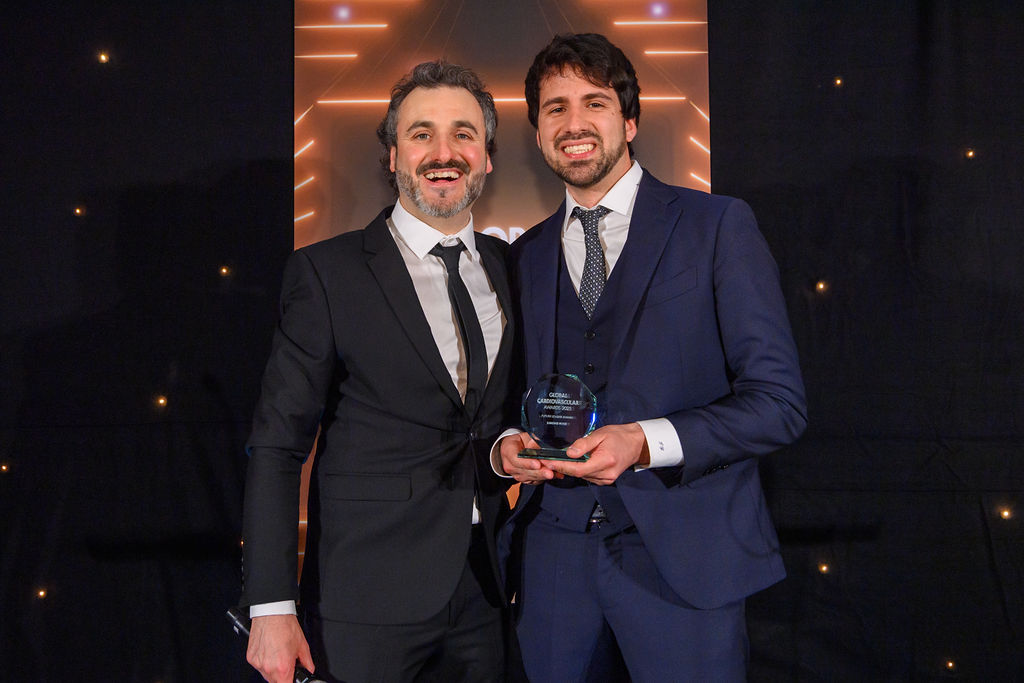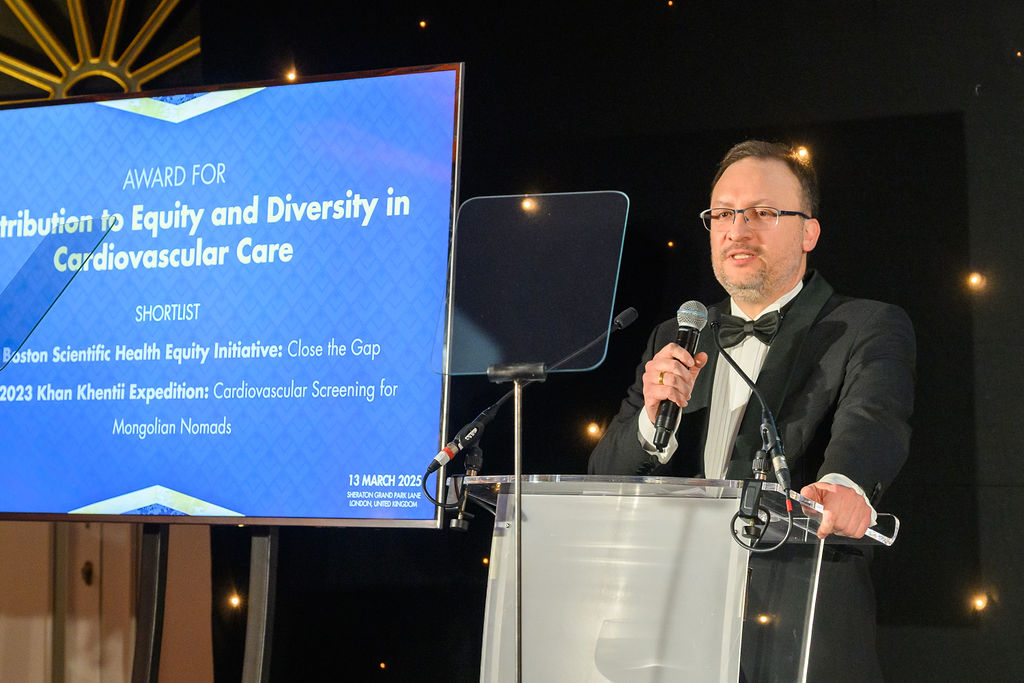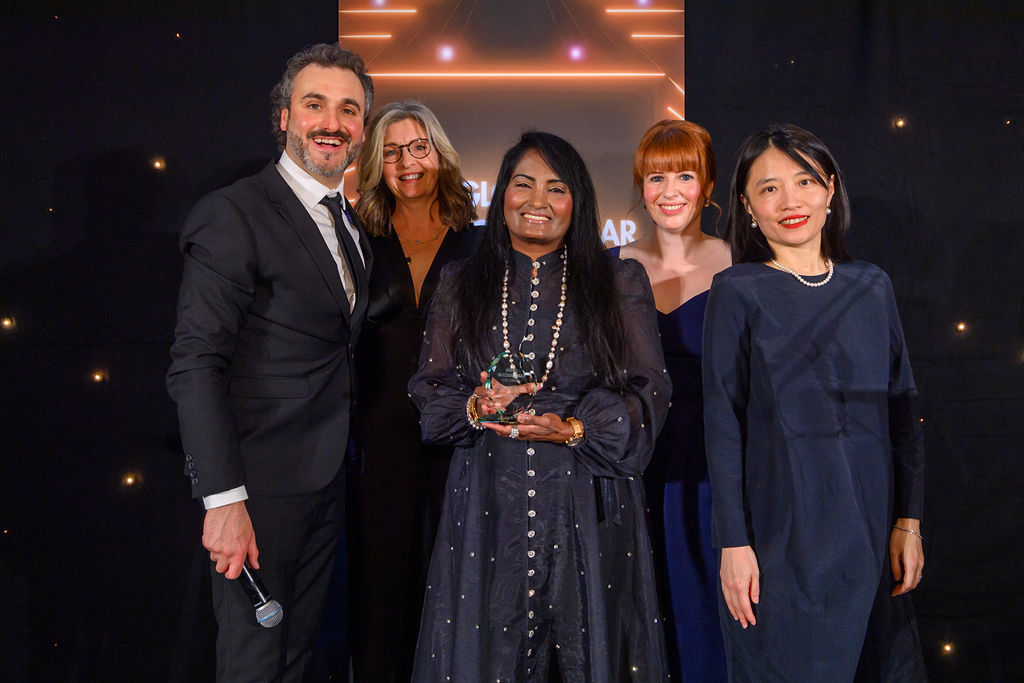 One of interventional cardiology’s master operators, known globally for his landmark work in the field of coronary stenting, intravascular ultrasound (IVUS) and stent thrombosis, was recognised for his stellar career at the second annual Global Cardiovascular Awards (13 March, London, UK).
One of interventional cardiology’s master operators, known globally for his landmark work in the field of coronary stenting, intravascular ultrasound (IVUS) and stent thrombosis, was recognised for his stellar career at the second annual Global Cardiovascular Awards (13 March, London, UK).
Antonio Colombo (San Raffaele Scientific Institute, Milan, Italy) was given the Lifetime Achievement Award for his groundbreaking work across nearly 50 years in practice.
The awards, hosted by Cardiovascular News with support from the European Cardiovascular Research Institute (ECRI), Cardialysis and Boston Scientific, seeks to recognise the innovators and pioneers at the forefront of efforts to improve the treatment of cardiovascular disease worldwide.
Across 14 categories, awards were presented to some of the individuals, industry leaders and non-profit organisations who are helping to shape the future of cardiovascular care. Each award category was adjudicated by a panel assembled by Cardiovascular News, and the winners were announced at a ceremony at London’s Grand Sheraton Hotel yesterday evening (13 March) hosted by the comedian and entertainer Patrick Monahan.
“I’m proud of optimising stent implantation with use of intravascular ultrasound, high-pressure balloon inflation, and dropping coumadin switching initially to ticlopidine and then clopidogrel. If I had to stop my career I would stop after I did that,” Colombo said in an address to the Global Cardiovascular Awards audience, reflecting humbly on his career. “It is acceptable for one life of a person to solve one problem, at least one problem has been solved!”

Simone Fezzi (University of Verona, Verona, Italy) was named as the recipient of the Future Leader award, recognised for his contributions to several notable studies in interventional cardiology, particularly focusing on coronary physiology and advanced imaging techniques in percutaneous coronary intervention (PCI), as well as drug-coated balloon (DCB) PCI, and his work on the DCB-Academic Research Consortium (ARC) working group.
The team behind the BHF SENIOR-RITA trial, led by Vijay Kunadian (Translational and Clinical Research Institute, Newcastle University and Freeman Hospital, Newcastle-Upon-Tyne, UK), were handed the Clinical Research Excellence Award for their work comparing an invasive and a conservative strategy to treat patients over the age of 75 years with a non-ST-elevation myocardial infarction (NSTEMI).
Among the industry awards, Medtronic was named the winner in the Best Cardiovascular Product Launch category, for the launch of its Aurora Extravascular Implantable Cardioverter Defibrillator (ICD) system. Siemens Healthineers’ Hero Campaign was named as the best educational campaign, for its work to raise awareness for cardiovascular care by bringing the ‘heroes of daily work’ to the forefront.
Ahmed Elmouelhi, CEO of the tricuspid valve innovator TriCares, was named as the CEO of the year. The Medtronic and Atricure veteran paid tribute to his team, in collecting the award.
In the Best Startup category, Egg Medical, whose pioneering products seek to limit radiation exposure for cath lab teams, was named as the winner, recognised for key milestones including the global launch of its EggNest XR radiation protection system, as well as the EggNest Protect and EggNest Complete Radiation Protection systems in 2024. The company has already obtained US Food and Drug Administration (FDA) and CE-mark approvals, and has systems in 50 US and 10 global hospitals.
Global Heart Hub was named as the winner of the Best Prevention Campaign award for its Manifesto for Change, which seeks to drive early detection and diagnosis of cardiovascular disease.

Boston Scientific’s health equity initiative, Close the Gap, was named as the winner in the category recognising the Contribution to Equity and Diversity in Cardiovascular Care. The award was presented by ECRI’s Ernest Spitzer, who commented: “Innovation continues to deliver better therapies for patients in need. But, clinical investigations supporting these therapies sometimes lack adequate representation of all patients who suffer from the specific condition.
“Clinical trials have traditionally underrepresented women, the elderly, demographic minority groups, and lower-income families. Becoming conscious of these information gaps has motivated numerous initiatives to increase high-quality data in underrepresented patient populations.
“The Close the Gap initiative from Boston Scientific has pioneered on this mission and continues to create better pathways to address disparities. Almost 20 years since its beginnings in cardiovascular disparities, it has evolved into other areas such as asthma and colon cancer. On behalf of the organisers, it is an honour to dedicate this award to Boston Scientific, which continues to lead in many different areas within cardiovascular care.”

Innovation was a central theme running through the awards, and several categories sought to recognise the ingenuity and novel use of technology to improve outcomes for patients with cardiovascular disease.
In the Digital Innovation category, the Acarix CADScor system, an AI-powered acoustic diagnostic aid to rule out coronary artery disease, was crowned as the winning entry, whilst the HeartFlow ONE system picked up the Innovation in Cardiac Imaging award.
In a highly competitive Innovation in Interventional Cardiology category, Medtronic’s Symplicity Spyral renal denervation system won out. Presenting the award, Adrian Banning (Oxford Heart Centre, John Radcliffe Hospital, Oxford, UK) to the important collaboration between industry and clinicians need to drive advances in the field.
Highlighting the important recent developments in improving the safety of interventional procedures, Rampart IC was selected as the winner in the Innovation in Patient and Operator Safety category for its fully adjustable, portable radiation shielding system that provides proven, full-bodied radiation protection for interventionalists.
In the Collaboration of the Year category, the Redo TAV App, which provides guidelines for assessing the suitability of a transcatheter aortic valve for Redo-TAV procedures, was recognised by judges for its cross-industry participation. The initiative was led by Vinayak Bapat (Minneapolis Heart Institute Foundation, Minneapolis, USA).









